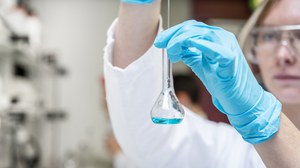Gute wissenschaftliche Praxis an der TU Dresden
Wissenschaftliche Arbeit beruht auf Grundprinzipien, die in allen wissenschaftlichen Disziplinen gleichermaßen gelten. Oberstes Prinzip ist die Wahrhaftigkeit gegenüber sich selbst und anderen. Sie ist zugleich ethische Norm und Grundlage der in den einzelnen Disziplinen geltenden Regeln wissenschaftlicher Professionalität.
 © PantherMedia / hirun laowisit
© PantherMedia / hirun laowisit
Grundlagen des wissenschaftlichen Arbeitens an der TUD
Alle Angehörigen der TU Dresden sind verpflichtet, die Satzung zur Sicherung guter wissenschaftlicher Praxis, zur Vermeidung wissenschaftlichen Fehlverhaltens und für den Umgang mit Verstößen zu befolgen, sie zur Grundlage ihres wissenschaftlichen Arbeitens zu machen und in ihrem Wirkungsbereich aktiv zur Vermeidung wissenschaftlichen Fehlverhaltens beizutragen.
Wissenschaftliches Fehlverhalten wird an der TU Dresden nicht toleriert. Jedem begründeten Verdacht auf wissenschaftliches Fehlverhalten innerhalb der TU Dresden wird mit größter Aufmerksamkeit und unter Wahrung der Rechte der Beteiligten nachgegangen. Bei bestätigtem Verdacht werden die für den Einzelfall angemessenen Maßnahmen ergriffen.
Wenn Sie Fragen zur guten wissenschaftlichen Praxis haben oder einen Verdacht auf wissenschaftliches Fehlverhalten hegen und Beratung benötigen, stehen Ihnen die Ombudsperson und die Prüfstelle für gute wissenschaftliche Praxis zur Seite. Für den wissenschaftlichen Nachwuchs stehen als erste Ansprechpersonen auf Fakultätsebene die Vertrauenspersonen für den wissenschaftlichen Nachwuchs zur Verfügung.

